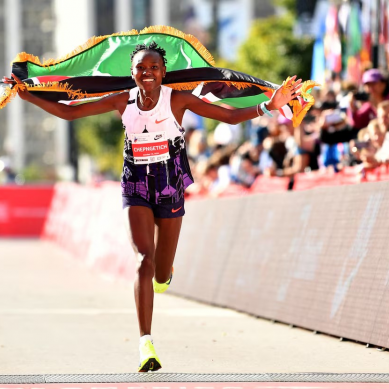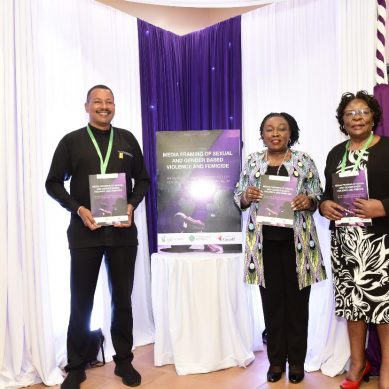
By all accounts, Apple Inc co-founder Steve Jobs did have a marathon writing session, working with his widow, Laurene Powell Jobs. His old friend Michael Hawley had suggested that he print out the speech, squint at it, and practice reading it out loud.
“You don’t want to be stumbling with your nose in a page, so just walk down the street and read it to a tree a few times so that you’re comfortable with the page turns or whatever,” Hawley told him. For the next few days, Jobs rehearsed and revised and, as Schlender and Tetzili wrote in their book, read it to his whole family at dinner.
The night before the ceremony, Stanford held a dinner for various commencement guests. Jobs’ attendance was uncertain. “The entire day we were hearing Steve is coming,” one of the co-presidents, Spencer Porter, says. “Then we heard Steve is not coming, definitely not. Then, 30 minutes before, we hear he is coming.”
When Jobs arrived, he gravitated to his Pixar employee Tom Porter, who introduced him to his son and the other co-presidents. They thanked him effusively for doing the speech.
“I should never have agreed to do this,” he told them. “I don’t have any jokes. It’s not going to go well.” He told them that just days before, he had considered backing out. The co-presidents looked at each other in horror. “We were like, holy shit, this guy doesn’t even want to be here,” says Paola Fontein, one of the co-presidents. “Should we have gotten Jon Stewart?” Another co-president, Steve Myrick, thought to himself, I sure hope he shows up tomorrow.
Jobs woke up on the morning of the 12th riddled with anxiety. “I’d almost never seen him more nervous,” Laurene Jobs would tell Schlender and Tetzeli. Even on the short drive from his home to the stadium – their three kids in the back – he rode shotgun in the family SUV, still tweaking the speech. When they tried to get to the VIP parking lot, they couldn’t find the pass that would gain them entry. They had trouble convincing the guard that the frazzled guy in a black T-shirt and ripped jeans was actually the commencement speaker, but they finally got through.
Jobs had earlier asked Hennessy if it would be OK to wear jeans and indeed he showed up in Levi’s and Birkenstocks.
The family went to a luxury suite while Jobs was fitted with regalia. By the time Jobs joined the procession to the podium with President Hennessy and other guests, the atmosphere in the stadium had taken on a rowdy aspect.
Commencement day at Stanford has a carnival element. The graduates-to-be circled the field in a “wacky walk” and wore preposterous costumes over their robes. A lot of them were still fuzzy from celebrating the night before. Also, it was a sizzling summer day. So after Hennessy gave Jobs a warm introduction, the speaker faced a boisterous audience distracted by the heat. And Jobs was about to give a speech that could have qualified as the downer of all time – setting graduates off into their new lives by reminding them that they were going to die.
Although he almost certainly practiced the 15-minute speech enough to memorize it – in his keynotes he would speak articulately without notes for an hour – he opted here to read from his printed sheets of paper. This was no Stevenote. The audience was unfamiliar. The venue was uncomfortable. He was in a weird robe, not his beloved Issey Miyake turtleneck.
When he spoke, his voice was steady, but it lacked his typical authority and verve. “He was a little gimpy at the podium,” Hawley told Markoff. “It was one of the few times he was vulnerable in public. That worked out well for him.”
From the video, it seemed the audience was listening politely. Some hardly did. Even Porter, the co-president who most wanted Jobs there, was somewhat distracted.
“It was so unbelievably hot that a lot of time during that speech I just spent drinking water and looking for more water,” he says. The Stanford band had been instructed to play a note each time Jobs said a word on the Bingo card, so there were some bleats when he hit the squares for words like “dropout” or “Next.”
Graduation speeches often are crafted to evoke laughter, but the closest Jobs got to a joke was when he mentioned how Windows copied the Mac – a drive-by remark on how the Macintosh’s treatment of fonts set the tone for the entire computer industry. Jobs didn’t acknowledge the crowd’s response. He kept reading.
“Most folks had gone out celebrating the night before, so you had a group of tired people sitting in the sun,” Myrick says. “But you could tell it was something that he had really put thought into. I remember thinking, ‘Wow, like, I’d like to go back and read that when I’m not in this situation.’” Hennessy says that he knew from the start that Jobs was delivering a thoughtful, moving oratory, never mind the printed sheets.
Jobs concluded with the words printed on the back cover of the final issue of the Whole Earth Catalogue: “Stay hungry, stay foolish.” It was exactly the uplifting kicker that Hawley had asked for. Stewart Brand would later remark that because he wound up as the punchline for the most renowned college address ever, “I became famous late in life.”
The initial applause from the students was modest. At his keynotes, Jobs was used to a more thunderous response when announcing, say, a new OS feature or how many iPods sold in the past year. After a few seconds, though, some students stood, seemingly more out of respect than jubilation. Most others followed suit. It isn’t clear that the speaker noticed. He simply looked relieved.
“Steve wasn’t so sure it went well as we headed out of the stadium,” Hennessy says. “But I assured him it had.” Jobs returned home with his family, glad the episode was over.
It was only the beginning.
At that point in time, YouTube was only months old, Twitter didn’t exist and Facebook didn’t even have its news feed. The national media hadn’t covered the speech. Apple sent out no press releases. But Stanford published the transcript on its primitive website, and people began discovering it. I recently checked my inbox for June 2005 and found multiple copies sent to me from different mailing lists. As the weeks and months went by, more and more people found the speech. Berlin describes it as going “slow-motion viral.”
“The speech started to get talked about, how honest it was,” says Porter, the class co-president. “I would have meetings in Hollywood – I’m a TV writer – and people would see I was from Stanford and ask if I saw that speech that Steve Jobs gave.”
Jobs himself seldom mentioned it; at least I never saw him quoted on the subject. He joked to one person that he’d bought it from CommencementSpeeches-dotcom. He responded to a thank-you note from the co-presidents by saying, “It was really hard for me to prepare for this, but I loved it (especially when it was over).”
Six years later, something happened that would change the way viewers perceived the speech. On the podium Jobs had said that his cancer diagnosis and his surgery a year later had been the closest he had come to facing death, and that he hoped to have a few more decades.
On October 5, 2011, after many months of fighting the cancer he told students he had beaten, Steve Jobs died.
Anyone replaying his speech today knows how much he accomplished in his 56 years. As much as any public figure in our time, Jobs lived according to the advice he offered the students that day. He pursued what he loved and refused to lead anyone else’s life, and the result can be measured in his legendary products. But as life-changing as his gadgets were, none strike the heart and soul as intimately as the Stanford speech.
Random example: In 2016, after the Cleveland Cavaliers lost the first two games of the NBA finals, LeBron James played the speech for the disheartened squad in the locker room. It galvanised the team. Kevin Love wrote “stay hungry, stay foolish” on his sneakers. Four games later, James hoisted the championship trophy.
For her class reunion this October, Paola Fontein, the class co-president, plans to make custom sweaters with the words “still hungry, still foolish.”
I asked her if she thought it was the greatest commencement speech of all time. “I would say so,” she replied. “I don’t hear anyone talking about another one.”
- A Tell Media report / Originally published by Wired







